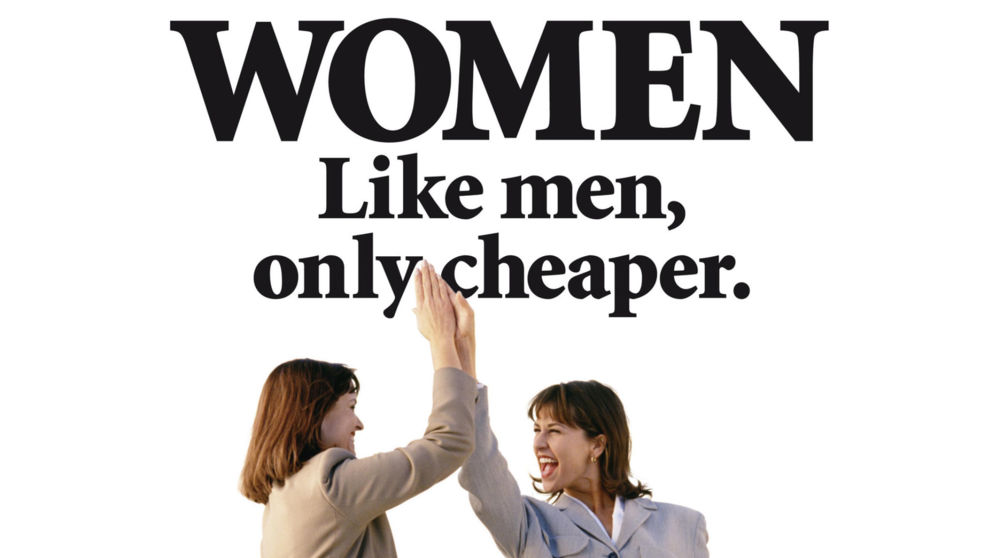By Sam Smethers, Chief Executive – The Fawcett Society
I feel as if the world is speeding past us yet somehow on the issue of pay, we are frozen in time.
Equal Pay Day – the day in the year from which women are effectively working for free – hasn't shifted at all.
It's a stalled picture which means we are seeing no progress.
In fact, if you look back over the past five years, the rate of change we have seen is so bad we won't close the gender pay gap until 2117 – 100 years from now.
So what is going on? There are a few things in the numbers which are particularly worrying this year.
We are used to seeing a wider pay gap for older women. We know it widens throughout women's working lives, particularly driven by the unequal impact of caring roles, and becomes a whopping pensions gap of 40% in retirement.
Not good. But this year we are also seeing, for the first time, a widening of the pay gap for younger women, those just entering the jobs market.
:: Gender pay gap 'will take 100 years to close'

It is not clear from the data why this is happening but it suggests a gap in starting salaries which inevitably puts women on the wrong track for their working lives.
I suspect at least part of the explanation also lies in workplace culture.
We've seen an unprecedented focus on workplace harassment in recent weeks.
We also know that harassment and discrimination is a feature of the gender pay gap, because it undermines the effectiveness of organisations and teams, prevents women from fulfilling their potential at work, or drives them out of their workplace.
TUC research shows that just over half of all women have experienced harassment, but for younger women the figure is 63%.
The uncomfortable reality for us all is that a culture that tolerates or even fosters sexual harassment probably won't be paying women fairly either.

Another worrying feature of this year's data is the number of women who are earning below the minimum wage.
There are 100,000 more women than men who are on the lowest incomes.
We know that women often end up in low-paid part-time work, but they are more likely than men to stay there for longer, trapped in poverty wages by a lack of quality part-time jobs that they can combine with caring for children or other relatives.
We see fairly sizeable regional variations as well. London still has the biggest gap at 20.7% but it has at least reduced by 3 percentage points.
In the North East it's growing, up from 8.7% to 10.2%.
And we know that black, Asian and minority ethnic women are likely to see larger pay gaps, suggesting that they are experiencing multiple discrimination and disadvantage.
So what do we do about it?
What we can all do is start talking about pay.
:: Most 'sexist' city in gender pay revealed

It is still taboo to talk to your colleagues about what they earn. But in this culture of secrecy pay inequality can thrive.
We also need to ask our employers what they are doing to measure and report their gender pay gaps, and what action plan they are putting in place.
Large employers will be required to do this by April next year. We need enforcement action against any who don't comply.
The Government need to do much more to foster a flexible working culture in our workplaces – the default model needs to be all jobs are flexible working jobs unless there is a good business reason for them not to be.
Leave for fathers needs to be longer and paid at a higher rate – with a presumption of equal responsibility of caring for children.
We need to pay the minimum wage at real living wage rates to help the lowest paid, and we need to do much more to tackle the segregation in our schools, colleges and workplaces.
Sometimes it feels as if we have a mountain to climb to close the pay gap. But with concerted action we can do it.
Join the campaign today. Make your #paygappledge and tell us what you will do.
Sam Smethers is the chief executive of The Fawcett Society. Today they are encouraging people across the UK to pledge to do their bit to tackle unequal pay – whether that's workers starting a conversation with colleagues or companies and Government making tangible changes.
More analysis & comment
- Previous article Beware small states: Lebanon stokes Mideast tensions
- Next article Sky Views: Clean up our complex tax system





